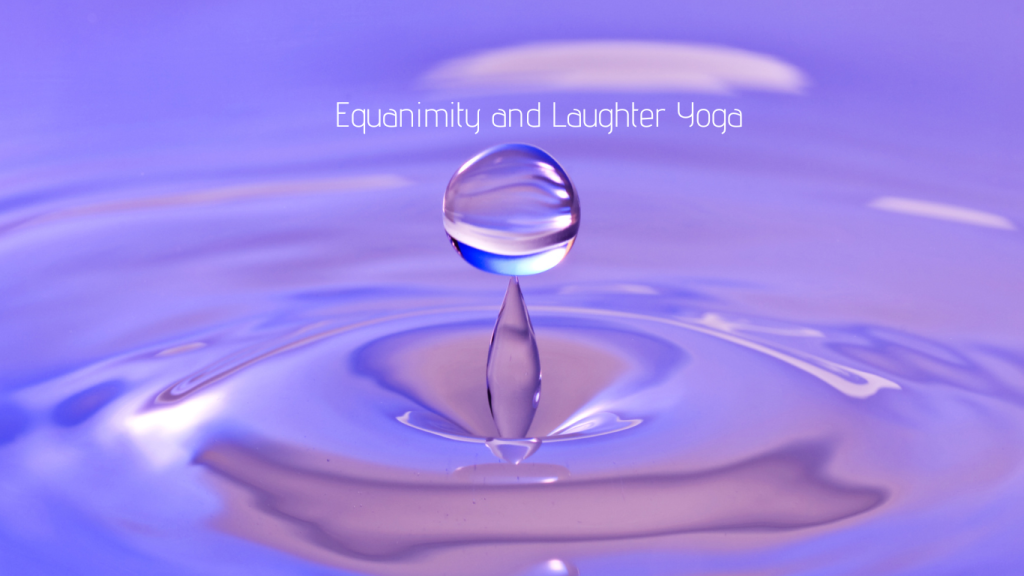
Do you ever think about, ponder, focus on or are aware of the topic of equanimity? I do all the time, as part of my spiritual journey.
Equanimity is living in a state of balance, achieved by focusing on living in the present, self-aware mindful and with compassion. It may look like someone is centred in one’s being, remaining calm, grounded and centred, whilst experiencing challenges.
Equanimity is generally on board as we practice living in this form of self-mastery. It is not something we can choose in case of emergency; it is ingrained in our being through regular practice in our daily lives.
This is a wonderful topic and the cool thing about it is we can all improve in this area if it interests us and we can see the importance of living this way. Let’s face it, we are not alone and are nearly always in various relationships, whether they be family, business, work, social etc.
I feel that equanimity is a whole body experience, a feeling, spiritual thing and need not be a controlled mental state. This implies suppression and the heart is not involved, although there are good intentions present.
To effectively be in equanimity we need to centre ourselves first and act with clarity of intention and compassion. As I practice being in equanimity, in order to centre myself I pause, take a breath or two, allow myself to slow down and become aware of how I am feeling. To be in this calm, centred, mindful state of mind and emotions, I am better able to apply myself to every situation. It is not necessarily so simple, nor easy to do, which is why it is important to have the quality of equanimity on board in one’s personality and self expression. If you attempt to be that way in an emergency, failure is more likely to be the case.
There are many Buddhist references to living in equanimity, which is a state of balance where one doesn’t react to difficult situations. It is part of living in a grounded, mindful manner, without supressing emotions and feelings. Equanimity is a beautiful state to become endowed with, which has a positive, uplifting effect upon those around us in our everyday lives.
It is a non-judgmental, accepting way of being and it may be developed through the practice of laughter yoga.
How laughter yoga helps you achieve equanimity
Did you know that laughter yoga is a practice that greatly assists us to live in equanimity? A lot of research mentions the benefit of being in greater equanimity when we come together doing laughter exercises. Isn’t that grand? Perhaps is another terrific reason to come along and join us for regular laughter exercises.
This happens organically, that is very naturally, when we come together in playful fun with each other. The way we perceive life upgrades to that of becoming self-accepting and it follows, we become more tolerant and accepting of others and of life situations.
Notwithstanding the times when we may need to walk away from things or people, this is not an airy-fairy way of being, where we become doormats and allow ourselves to be in abusive situations.
What laughter yoga helps with is slowly developing a more cheerful, fun filled, optimistic personal value, leading to living in far greater equanimity because of the way regular laughter can help us.
Some Aussies Involvement in Laughter Yoga
It feels like a good idea to impress upon you more about this, the fact that many people around the world work professionally with laughter yoga and also a great many who are making grounded differences here in Australia. They come from different backgrounds and fields of work.
I will mention three people, firstly to give a shout out to Merv Neal, a local, who filled in for me when I was on a retreat recently. He is responsible for initiating laughter yoga in numerable places which call for more equanimity in people’s lives. For example, it is being accepted as a fabulous activity in the wellbeing and healing area; he is involved in research conducting laughter for kidney dialysis patients and working with the Cancer Council. He co-authored a scientific study book last year which I love.
A prominent Melbourne laughter leader, teacher and academic is Ros Ben-Moshie, who has written two laughter books. Ros also teaches short course courses in Laughter, Resilience and Wellbeing at Latrobe University.
There are many more prominent Australians doing amazing work in the laughter yoga field, which is taking off, i.e. becoming widely known and accepted as a highly beneficial practice for us all to be doing.
The third one I will share with you is Annie Harvie who lives in Adelaide and has written The Giggle Game. Annie has taken this fun, simple, interactive card game all around the world. It is designed for early learners, and I highly recommend it to school teachers and parents. It is a simple way of bringing the exercise of laughing together to us all and in particular, children.
Thank you for taking the time to read this article and wishing you an excellent 2025. You are always welcome to join John, myself and the small group who come regularly to laughter club.
First timers, please contact me, Lynette to in case of a meeting change. You may even like to add yourself to the email reminder for the laughter club or sign up for my newsletter. My website has information regarding workshops, classes, laughter yoga and blog.
The Ferntree Gully Laughter Club meets at 11am on the 2nd & 4th Sunday of the month.
We are at the Ferntree Gully Library 2pm on the 4th Tuesday of the month March onwards and at the Boronia Library, 11am the 3rd Saturday of the month recommencing in May.
Cheerio for now.
Lots of Love and Laughter. Lynette Mitchell. xo
